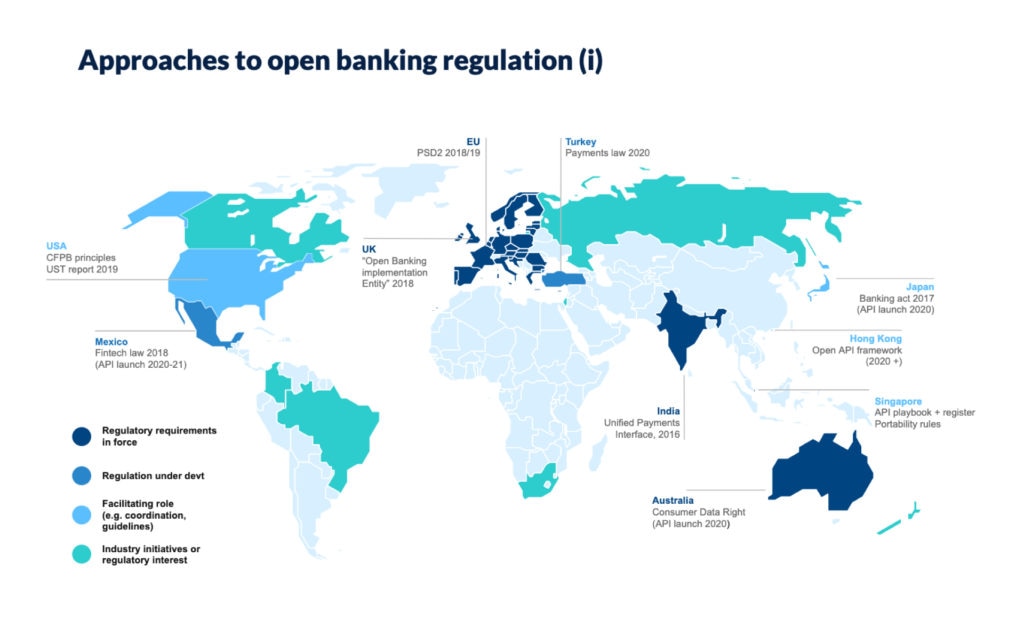
Trade Policy and National Security: Protecting Your Nation in a Globalized World
In our interconnected world, goods and services flow across borders at an astonishing pace. From the smartphone in your pocket to the food on your plate, almost everything we consume has traveled internationally. This global trade brings immense benefits – lower prices, more choices, new jobs, and economic growth.
But what if the very things that connect us could also expose us to risks? What if relying too heavily on other countries for essential goods could jeopardize a nation’s safety and well-being? This is where the often-complex relationship between trade policy and national security comes into play.
For beginners, this might sound like a topic for economists and politicians only. But understanding how trade impacts a nation’s security is crucial for everyone. It affects jobs, prices, and even the stability of a country. This article will break down this vital connection, making it easy to understand how trade decisions can be about much more than just money – they’re about protecting a nation.
What is Trade Policy? (In Simple Terms)
Think of trade policy as the rules a country sets for buying and selling goods and services with other countries. Just like a family might have rules about how they spend money or who they buy from, governments have rules for international trade.
These rules often involve:
- Tariffs (Taxes on Imports): Imagine a tax added to a foreign-made car when it enters your country. This makes the foreign car more expensive, encouraging people to buy locally made cars instead.
- Quotas (Limits on Imports): This is like saying, "We’ll only allow 10,000 foreign-made shirts into our country this year." It limits how much of a specific product can come in.
- Trade Agreements: These are like contracts between countries that set the rules for how they’ll trade with each other. They might reduce tariffs or make it easier for businesses to operate in each other’s markets. Examples include the North American Free Trade Agreement (NAFTA, now USMCA) or the European Union.
- Subsidies: This is when a government gives money or support to its own industries to help them compete better, both at home and abroad.
- Export Controls: Rules that limit or prohibit the sale of certain goods or technologies to other countries, especially those that could be used for military purposes or by adversaries.
The goal of trade policy is often to boost a country’s economy, create jobs, and ensure fair competition. But as we’ll see, it also has a profound impact on national security.
What is National Security? (More Than Just Soldiers)
When you hear "national security," your first thought might be of soldiers, tanks, and fighter jets. And you’d be right – military defense is a huge part of it. But in the modern world, national security is much broader. It encompasses anything that threatens a nation’s fundamental well-being, stability, and way of life.
Here’s what modern national security includes:
- Military Security: Protecting against armed attacks, terrorism, and maintaining a strong defense.
- Economic Security: Ensuring a stable economy, protecting critical industries, and preventing economic collapse or foreign economic coercion. This means having enough jobs, stable prices, and reliable access to essential goods.
- Cybersecurity: Protecting digital infrastructure (power grids, banking systems, communication networks) from hacking, espionage, and attacks.
- Energy Security: Having reliable and affordable access to the energy needed to power homes, businesses, and transport.
- Food Security: Ensuring that a nation has enough safe and nutritious food for its population.
- Environmental Security: Protecting against natural disasters, climate change, and resource depletion that could destabilize a nation.
- Health Security: Protecting against pandemics, widespread disease, and ensuring access to essential medicines and healthcare.
The core idea is that a nation isn’t truly secure if its economy is fragile, its power grid is vulnerable, or its citizens can’t get essential supplies.
The Interconnection: How Trade Affects Security
Now, let’s connect the dots. Trade policy and national security are not separate issues; they are deeply intertwined, like two sides of the same coin. Decisions made about trade can directly strengthen or weaken a nation’s security across all the areas we just discussed.
Here’s why:
- Reliance Creates Vulnerability: If a country relies too heavily on one foreign source for critical goods (like medicines, rare minerals, or computer chips), it becomes vulnerable. If that source cuts off supply (due to conflict, natural disaster, or political dispute), the importing country is in trouble.
- Economic Strength Fuels Security: A strong economy generates wealth, which can be invested in defense, research, education, and infrastructure – all vital for national security. Trade can boost this economic strength.
- Technology Transfer Risks: Trading advanced technologies can sometimes mean those technologies fall into the wrong hands, potentially enhancing the military capabilities of adversaries.
- Leverage and Coercion: Countries with significant economic power can use trade as a weapon, threatening to cut off trade or impose tariffs to pressure another country into political concessions.
Key Areas Where Trade Policy & National Security Intersect
Let’s dive into specific examples where trade policy choices have a direct impact on a nation’s security.
1. Supply Chain Vulnerabilities (The "Don’t Put All Your Eggs in One Basket" Problem)
What it means: A supply chain is the entire process of getting a product from raw materials to the final consumer. When these chains stretch across many countries, they can become vulnerable.
The Security Concern:
- Critical Goods: During the COVID-19 pandemic, many countries realized they relied almost entirely on a few foreign suppliers for masks, medical equipment, and even basic medicines. This created a national security crisis.
- Rare Earth Elements: These are crucial minerals needed for everything from smartphones to fighter jets. China currently dominates the supply of many rare earths. If that supply were disrupted, it could cripple key industries globally.
- Semiconductors (Computer Chips): Modern life runs on computer chips. A vast majority of the most advanced chips are produced by a handful of companies, mainly in Taiwan. Any disruption there could have catastrophic effects on the global economy and defense industries.
Trade Policy Solutions:
- Diversification: Encouraging companies to source materials and components from multiple countries, not just one.
- Reshoring/Friendshoring: Bringing production of critical goods back home (reshoring) or to trusted allied countries (friendshoring) to reduce reliance on potential adversaries.
- Strategic Stockpiles: Maintaining reserves of essential goods (like oil or medical supplies) to buffer against short-term supply shocks.
2. Strategic Industries & Dual-Use Technologies
What it means: Some industries are so vital to a nation’s defense and future that they are considered "strategic." "Dual-use" technologies are those that can be used for both civilian purposes (like a powerful computer chip) and military ones (like guiding a missile).
The Security Concern:
- Defense Production: A country needs to be able to produce its own weapons, military vehicles, and defense systems, or at least have reliable access to them from allies. Relying on potential adversaries for key components in defense systems is a huge risk.
- Advanced Technologies: Industries like artificial intelligence (AI), quantum computing, biotechnology, and advanced manufacturing are not just economic drivers; they are the future of military power.
- Foreign Ownership: If a foreign entity (especially from a rival nation) buys a strategic domestic company, it could gain access to sensitive technology, intellectual property, or control over critical infrastructure.
Trade Policy Solutions:
- Investment Screening: Governments review foreign investments in domestic companies, especially those in sensitive sectors, to prevent security risks.
- Export Controls: Strict rules on selling advanced technologies to countries that might use them against the nation or its allies.
- Domestic Investment: Government funding and incentives to support the growth of strategic industries at home.
3. Cybersecurity & Data Security
What it means: In the digital age, national security also depends on protecting information and digital networks from theft, sabotage, and espionage.
The Security Concern:
- Vulnerable Infrastructure: Telecommunication networks (like 5G), power grids, and financial systems are increasingly reliant on foreign-made hardware and software. If these components contain hidden "backdoors" or vulnerabilities, they could be exploited by foreign governments for espionage or sabotage.
- Data Theft: Trade involves vast amounts of data flowing across borders. If this data (personal, corporate, or government) is stored or processed by companies beholden to foreign governments, it could be stolen or accessed without permission.
- Intellectual Property (IP) Theft: Foreign companies or governments stealing a nation’s valuable trade secrets, designs, and research (often through cyber espionage) weakens economic competitiveness and future innovation.
Trade Policy Solutions:
- Vendor Restrictions: Limiting or banning the use of equipment from certain foreign companies in critical infrastructure (e.g., concerns over Huawei in 5G networks).
- Data Localization Rules: Requiring that certain types of data be stored and processed within a nation’s borders.
- Stronger IP Enforcement: Using trade agreements and international pressure to push for better protection of intellectual property abroad.
4. Economic Coercion & Leverage
What it means: Using economic power (like trade) as a tool to force another country to change its policies or behavior.
The Security Concern:
- Trade Sanctions: A powerful country might impose tariffs or block trade with a smaller country to punish it for certain actions (e.g., human rights abuses, nuclear proliferation). While sometimes necessary, these can destabilize economies.
- Boycotts and Embargoes: Refusing to buy or sell certain goods to a country.
- Sudden Supply Cuts: A country might suddenly cut off exports of a critical resource (like food or energy) to exert political pressure. This happened with Russia’s gas supplies to Europe.
Trade Policy Solutions:
- Diversification of Trade Partners: Reducing over-reliance on any single trade partner, especially potential adversaries.
- Building Alliances: Strengthening economic ties with trusted allies to create a collective front against economic coercion.
- International Rules: Working through organizations like the World Trade Organization (WTO) to establish fair trade rules and dispute resolution mechanisms.
5. Food & Energy Security
What it means: A nation’s ability to reliably feed its population and power its economy.
The Security Concern:
- Food Imports: If a country imports a large percentage of its staple foods, it becomes vulnerable to price spikes, supply disruptions due to conflict, climate change, or political disputes with exporting nations.
- Energy Imports: Reliance on foreign oil, natural gas, or other energy sources can make a nation vulnerable to supply cuts or price manipulation, impacting everything from transport to heating homes.
Trade Policy Solutions:
- Support for Domestic Agriculture: Policies that encourage domestic food production to reduce reliance on imports.
- Diversification of Energy Sources: Investing in renewable energy, nuclear power, and having multiple international energy suppliers.
- Strategic Energy Reserves: Maintaining emergency stockpiles of oil or natural gas.
The Balancing Act: Free Trade vs. Protectionism
Understanding these security concerns helps us see why trade policy is often a tricky balancing act.
- Free Trade (Open Markets): Generally leads to lower prices, greater choice, and economic efficiency. Countries specialize in what they do best, and everyone benefits from cheaper goods. It can also foster international cooperation and reduce the likelihood of conflict.
- Protectionism (Safeguarding Domestic Industries): Involves using tariffs, quotas, and subsidies to protect domestic industries from foreign competition. While it might save some jobs in specific sectors, it often leads to higher prices for consumers, less innovation, and potential trade wars with other countries.
From a national security perspective, the debate often shifts from purely economic efficiency to resilience and strategic autonomy.
- The Free Trade Argument for Security: Open markets can foster strong economic relationships, making countries less likely to engage in conflict. Economic prosperity from trade can also fund robust defense.
- The Protectionist Argument for Security: Protecting key domestic industries and reducing reliance on foreign supply chains makes a nation more self-sufficient and less vulnerable in times of crisis or conflict.
The challenge for policymakers is finding the right balance: leveraging the benefits of global trade while mitigating the inherent security risks.
Strategies for Enhancing National Security Through Trade Policy
Governments employ various strategies to manage the intersection of trade and security:
- 1. Supply Chain Mapping & Risk Assessment: Identifying critical supply chains, understanding where vulnerabilities lie, and assessing the risks associated with reliance on specific foreign suppliers.
- 2. Diversification and Redundancy: Actively encouraging companies to build more resilient supply chains by sourcing from diverse geographic regions and having backup suppliers.
- 3. Reshoring and Friendshoring Incentives: Offering tax breaks, subsidies, or other incentives to bring production of essential goods and technologies back home or to trusted allied nations.
- 4. Robust Export Controls: Regularly updating and strictly enforcing rules that prevent sensitive technologies and goods from being sold to countries or entities that pose a national security threat.
- 5. Strong Foreign Investment Screening: Implementing rigorous processes to review and potentially block foreign investments that could compromise national security (e.g., control over critical infrastructure, access to sensitive data or technology).
- 6. International Cooperation and Alliance Building: Working closely with allies to coordinate trade policies, share intelligence, build joint resilient supply chains, and present a united front against economic coercion.
- 7. Strategic Stockpiling: Maintaining reserves of critical raw materials, medical supplies, and other essential goods to ensure availability during emergencies.
- 8. Investment in Domestic Innovation: Funding research and development in key strategic technologies (AI, quantum computing, biotechnology) to ensure a nation remains at the forefront and reduces reliance on foreign breakthroughs.
Conclusion: A Continuous Challenge
The relationship between trade policy and national security is complex and ever-evolving. In a world where economies are deeply intertwined and new technologies emerge constantly, governments face the continuous challenge of balancing economic benefits with the imperative to protect their citizens and strategic interests.
It’s no longer enough to simply seek the cheapest goods or the most efficient production. Nations must strategically consider who they trade with, what they trade, and how resilient their supply lines are. Understanding these dynamics helps us appreciate the intricate decisions policymakers make every day – decisions that aim not only to keep the economy thriving but, more importantly, to keep the nation safe and secure in an unpredictable world.
As global events unfold, from pandemics to geopolitical tensions, the spotlight on trade policy as a national security tool will only grow brighter. It’s a conversation that affects us all, far beyond the headlines of tariffs and trade deals.



Post Comment